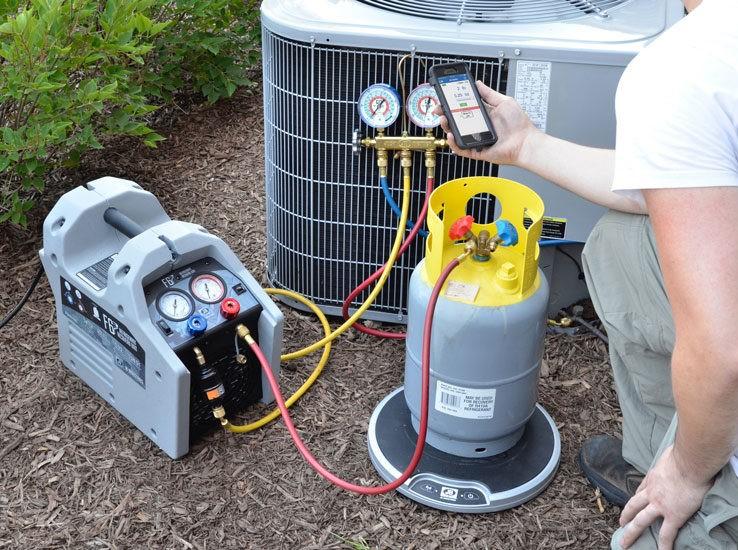Refrigerant recovery is a critical aspect of maintaining and servicing air conditioning (AC) systems. It involves safely removing refrigerant from the system before repairs, upgrades, or disposal. This process is essential for several reasons, including environmental protection, compliance with regulations, and preserving system efficiency. In this article, we’ll delve into the significance of refrigerant recovery in AC systems.
Environmental Protection
Refrigerants, such as hydrochlorofluorocarbons (HCFCs) and hydrofluorocarbons (HFCs), have been identified as potent greenhouse gases that contribute to global warming and ozone depletion. When released into the atmosphere, these chemicals can harm the environment and human health. By recovering refrigerants during servicing or decommissioning AC units, technicians prevent these harmful substances from escaping into the air. Proper recovery ensures that refrigerants are either recycled for reuse or disposed of safely, minimizing their environmental impact.
Regulatory Compliance
Governments worldwide have implemented regulations to control the use, handling, and disposal of refrigerants to mitigate their adverse effects on the environment. For example, the Montreal Protocol and its subsequent amendments aim to phase out ozone-depleting substances, including many commonly used refrigerants. Additionally, various countries have established laws and guidelines for the proper handling and disposal of refrigerants to prevent environmental contamination. By adhering to these regulations and employing refrigerant recovery practices, HVAC professionals ensure compliance and avoid potential fines or legal repercussions.
System Efficiency and Performance
Refrigerant plays a crucial role in the cooling process of air conditioning systems. When refrigerant levels are low due to leaks or improper handling, system performance and efficiency can suffer significantly. Inadequate refrigerant charge can lead to decreased cooling capacity, longer operating times, and higher energy consumption. By recovering and recharging refrigerant to the manufacturer’s specifications, technicians optimize system performance, ensuring efficient operation and lower energy costs for the end user.
Equipment Longevity
Proper refrigerant management, including recovery and recharging, contributes to the longevity of AC equipment. When refrigerant levels are maintained within the recommended range, the system operates more reliably and experiences fewer breakdowns. Conversely, low refrigerant levels can cause components to work harder, leading to increased wear and tear and premature equipment failure. By prioritizing refrigerant recovery and maintenance, HVAC professionals help prolong the lifespan of air conditioning systems, reducing the need for costly repairs or replacements.
Conclusion
Refrigerant recovery is a fundamental practice in the HVAC industry that serves multiple purposes, including environmental protection, regulatory compliance, and system optimization. By recovering refrigerants during servicing and disposal activities, technicians prevent harmful emissions, comply with regulations, and ensure the efficient and reliable operation of air conditioning systems. Ultimately, prioritizing refrigerant recovery benefits both the environment and the longevity of HVAC equipment, promoting sustainability and cost-effectiveness in the industry – service ac jakarta barat.






